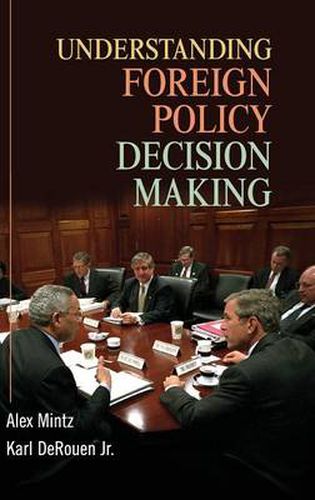Readings Newsletter
Become a Readings Member to make your shopping experience even easier.
Sign in or sign up for free!
You’re not far away from qualifying for FREE standard shipping within Australia
You’ve qualified for FREE standard shipping within Australia
The cart is loading…






Understanding Foreign Policy Decision Making presents a psychological approach to foreign policy decision making. This approach focuses on the decision process, dynamics, and outcome. The book includes a wealth of extended real-world case studies and examples that are woven into the text. The cases and examples, which are written in an accessible style, include decisions made by leaders of the United States, Israel, New Zealand, Cuba, Iceland, United Kingdom, and others. In addition to coverage of the rational model of decision making, levels of analysis of foreign policy decision making, and types of decisions, the book includes extensive material on alternatives to the rational choice model, the marketing and framing of decisions, cognitive biases, and domestic, cultural, and international influences on decision making in international affairs. Existing textbooks do not present such an approach to foreign policy decision making, international relations, American foreign policy, and comparative foreign policy.
$9.00 standard shipping within Australia
FREE standard shipping within Australia for orders over $100.00
Express & International shipping calculated at checkout
Understanding Foreign Policy Decision Making presents a psychological approach to foreign policy decision making. This approach focuses on the decision process, dynamics, and outcome. The book includes a wealth of extended real-world case studies and examples that are woven into the text. The cases and examples, which are written in an accessible style, include decisions made by leaders of the United States, Israel, New Zealand, Cuba, Iceland, United Kingdom, and others. In addition to coverage of the rational model of decision making, levels of analysis of foreign policy decision making, and types of decisions, the book includes extensive material on alternatives to the rational choice model, the marketing and framing of decisions, cognitive biases, and domestic, cultural, and international influences on decision making in international affairs. Existing textbooks do not present such an approach to foreign policy decision making, international relations, American foreign policy, and comparative foreign policy.